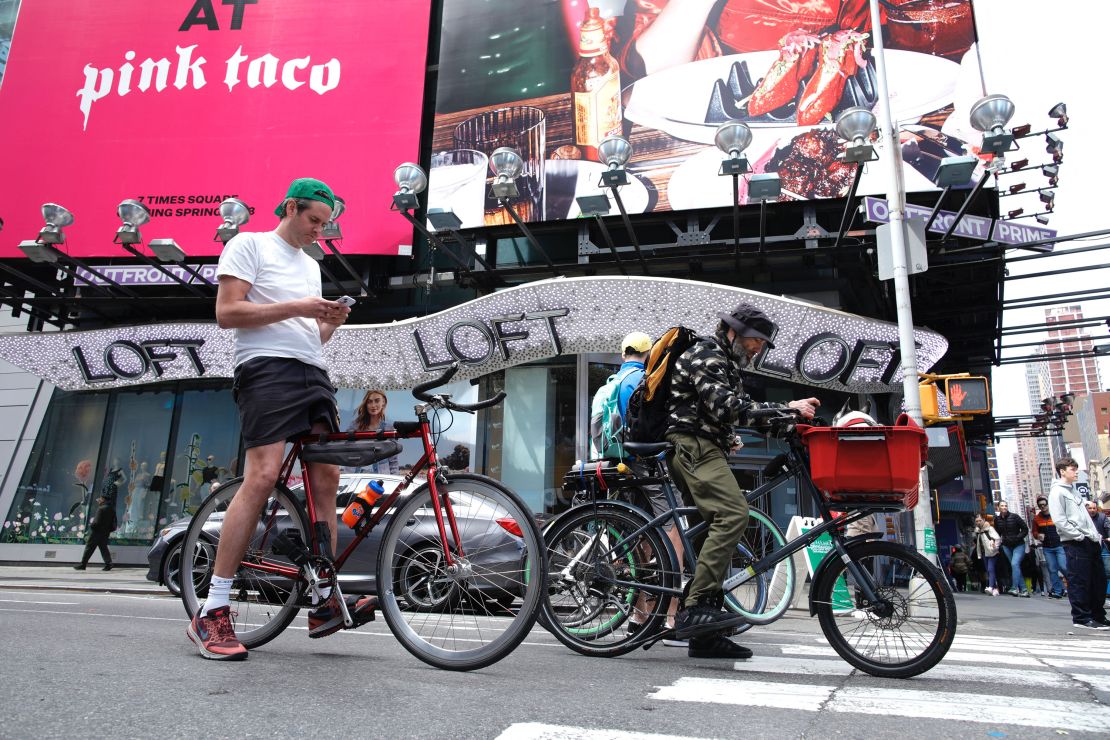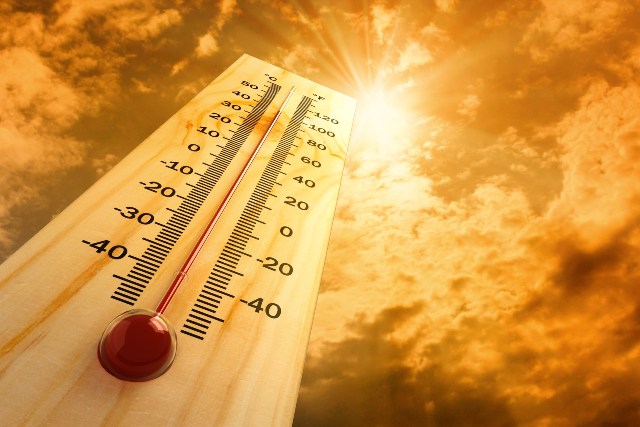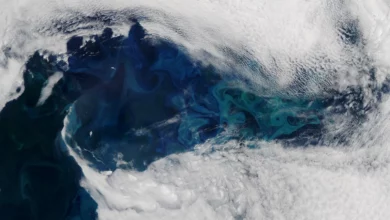
A version of this story appeared in CNN’s What Matters newsletter. To get it in your inbox, sign up for free here.
Although many Americans and policy wonks see climate change as the major existential issue of our time, it ends up feeling like a relatively small piece of the American political conversation, which is more focused on the economy, immigration and democracy.
The climate crisis ends up touching on all of those issues, as CNN’s chief climate correspondent Bill Weir told me. His new book, “Life As We Know It (Can Be): Stories of People, Climate and Hope in a Changing World,” comes out on April 16. We talked on the phone about his recent trip to Massachusetts, where some beachfront homeowners who want the state to do more to help protect the area from erosion and rising sea levels also deny the climate is in crisis.
My conversation with Weir, edited for clarity, is below:
The depressing reality vs. the promise of innovation
WOLF: You’re on the ground covering the climate crisis every day. Where has that taken you recently?
WEIR: To both ends of the spectrum. It’s the grim reality of what’s unfolding and also, we’re working on a special on innovation.
Most recently, I was in Salisbury, Massachusetts, on the New Hampshire border where folks there, over the generations, have watched the high tide get higher, year by year. As is the case along the Atlantic coast, erosion is accelerating along with sea level rise.
And so this year, over 100 homeowners banded together, spent $600,000 on 15,000 tons of sand in order to fortify their beachside homes from storms and higher tides. In years past, that would last them three or four years, but then they got yet another freak storm and high tide and most of it was washed away in a single day.
They’re coming to grips in various forms with the five stages of climate grief. They very much want the state to kick in.
I met some neighbors who refuse to acknowledge climate science and just believe that this is a string of bad luck, a one-off series of unfortunate events. Others are coming around to the to the idea and the actual scientific warnings that Massachusetts is bracing for, officially, a couple of feet of sea level rise above year 2000 levels just in the next decade or two.
This was a fascinating case study in the psychology about it, and how people who don’t really acknowledge the warnings of science are the ones most dedicated to saving what’s there now, and so are a vital part of bracing for what’s unfolding.
And at the other end of the spectrum?
WEIR: I went down to Florida and met with a couple of inspirational developers. One is Syd Kitson, a former NFL player, who built the first solar power town in America. It’s called Babcock Ranch, Florida.
I was riding out Hurricane Ian a few miles away where everything was plunged into darkness and flooded. But because of his designs and ideas, they never lost power and never flooded, and as a result, the demand for people to buy homes in Babcock Ranch has skyrocketed. He’s building them as fast as he can.
And so I’m looking at glimpses into how the climate crisis is already changing neighborhoods and which direction we’re likely to go when it comes to construction and food supplies and energy. It’s all changing incredibly fast – an industrial revolution that nobody’s talking about.
Climate refugees from Puerto Rico to Buffalo
WOLF: You did another story recently about Buffalo as a landing spot for climate refugees. I think it’s interesting that on the one hand, you’re talking to people who are making it so that we can withstand climate change in Florida, but then also thinking about where people are eventually going to have to move because of climate change. How far out is the horizon where we actually see people moving away from the Sunbelt because that’s where people have been moving to for so long?
WEIR: It’s a fascinating question for different reasons. Five thousand people who were driven out of Puerto Rico by Hurricane Maria went to Buffalo for refuge because there’s a Puerto Rican community there; 3,000 of them stayed.
The city embraced that. They need folks to revitalize these Rust Belt towns, and they have a ton of fresh water and clean energy with Niagara Falls. So they’ve declared themselves a climate refuge. For them, it’s not just the latitude, it’s the attitude around migration.
At the same time, for the first time in human history, sun and wind energy are the cheapest forms of energy. And so the sun belts, now we’re gonna think of them as the solar belts, and the wind belts, the high plains of Texas, are going to be a huge magnet for big manufacturing who need a lot of abundant energy.
Texas now leads the nation in clean energy just because of the economics, despite the politics and ideology. Bright-red Texas is the greenest state right now. The math, the economics of it, is going to change the landscape of what attracts companies, and then as a result, what attracts workers.
But ultimately, the heat is going to win. As the belly on the planet becomes more intolerable, the northern latitudes become that much more attractive.
Alaska could be the new Florida for retirees. It’ll be a lot wetter up there. But the band of the United States from Portland, Maine, to Portland, Oregon, across the Great Lakes is a refuge that is best positioned for that.
The UN predicts tens of millions of folks forced to cross borders by sudden, unnatural disasters. You can see what’s happening on the border now. And as droughts get worse in Central America, you can just play it out. The strain is going to go up.
Removing politics from climate change
WOLF: It’s interesting to hear you say that about Texas, because the governor and the Republican-dominated legislature there would seemingly be opposed to doing anything specifically because of climate change. But if there’s a capitalist urge, people seem more in tune with it. Joe Biden has tried to make the argument that addressing climate change should be an economic boom. Do you think that even if people are unwilling to accept that climate change is happening, they still might be doing things to address it?
WEIR: Oh, absolutely. A story that I don’t get to tell enough is just this massive boom in renewables and clean energy and clean water tech.
I think the most recent analysis was for every dollar spent by the Inflation Reduction Act and the Bipartisan Infrastructure Act, five-and-a-half bucks in private investment has chased that.
And there are these massive growth rates in the sectors that people aren’t talking about – carbon removal, thermal storage, using big boxes of hot rocks to store clean energy, using the earth as a battery through pressure, geothermal – all of these things are exploding now.
At the same time, the United States is the biggest petrostate in human history. Joe Biden has exported much more fossil fuels than Donald Trump. It’s the result of this big boom in fracked natural gas. That’s a big sticking point with the environmental wing of his base.
The big question is how much this new energy boom replaces the old, dirty kind of energy or if we just are so ravenous in our appetites; humanity never cuts back.
In places like Charleston (South Carolina), where they’re building a billion dollar seawall, and people are raising their 100-year-old mansions on the Battery, it’s not a political debate. It is reality. The physics are right there in your face.
Matt Yglesias is among others who have said we shouldn’t talk too much about climate at all. Because the average person, when it comes to actual action, daily action, doesn’t really want to do it.
Efficiency is coming regardless of politics
WOLF: I’ve wondered about that with regard to electric vehicles. It seems like some people are turned off by them because it’s making a political statement when you buy an EV instead of simply trying to get the best deal.
WEIR: I think what you’re seeing now is there’s been such sudden market saturation that now there’s a backlash, there’s a glut or an oversupply.
These things happen in fits and starts. Offshore wind was super exciting. And then it hit inflation headwinds and supply chain problems. EVs were a novelty and a statement. And now there’s a tyranny of choice. There’s so many different models and sorting out all the incentives is still not easy.
At the same time, we’ve crossed the point that I don’t think we’re going back to the internal combustion engine, as a species, the same way there was a certain point we weren’t going back to horses. It just makes more sense.
Electrifying everything is the ultimate result, I think, of all this. It’s just a matter of how fast it takes.
Look at these S-shaped curves of adaptation in history from the color television to the refrigerator that went from, you know, 10% of homes to 95% in a relatively short amount of time. We’ve seen that same thing with solar and battery storage, the same kind of thing with heat pumps. And there’s a big wave of efficiency and cleaner, more sustainable choices coming, regardless of the politics.
The coolest years of the rest of your life are behind you
WOLF: I read in CNN’s report that it was the warmest winter on record and that the planet was more than 2 degrees over the pre-industrial levels for a number of days in February. It seems clear that we’re going to burst through the 2-degree tipping point that had been previously suggested as the tipping point for climate change. What is the next marker?
WEIR: The hardest thing for most folks to grasp – I still have a hard time grasping it even though I live in the space every day – is that the record-shattering year that we just had isn’t just the hottest year in 120,000 years or so. It’s among the coolest years of the rest of our lives.
And there has been no meaningful reduction in emissions. The human hand on the global thermostat still has it cranked all the way up. And until that changes, until the atmosphere stabilizes at a certain rate, it’s just going to keep getting warmer.
The really scary stuff is what we don’t see and what’s much harder to measure and to communicate, which is that the ocean temperatures have broken a record every day for the last year.
Every new day on the calendar is the hottest such day that we’ve ever recorded. What that means for marine ecosystems and coral reefs, which are the cradles of life in the oceans, and what it means for the power of storms as we head into hurricane season has scientists really, really worried.
Daily life changes
WOLF: What are the little things that people should be doing? I don’t think anybody’s realistically asking people to stop travel completely. You travel to cover these stories. How do you layer the climate into your daily life?
WEIR: When you take on this beat, you see everything in life differently. I used to just see an ice cream truck and smile. Now I see the fumes coming off the generator. I think about the sugarcane fields that burn to make delicious treats. Everything has a cost if you really think about it.
I absolutely think about my flight footprint and for years would offset my air miles with clean energy projects that are vetted, charities I believe in.
But we can’t offset our way out of this problem. We have to come up with a way to fly sustainably, and we have to figure out a way to build our homes and source our food and make our clothing in much more efficient and sensible ways.
On the personal responsibility part of it, I do my best. I haven’t owned a car in a few years. I’m proud to say I have almost 4,000 miles on Citi Bikes (New York’s bike-share service), but I just like riding a bike. I’m not doing that to be some sort of Captain Planet statement maker; I just liked that way of getting around New York City. If I lived in Dallas or Chicago, it probably wouldn’t work.

Personal choices are important because they’re an extension of our awareness of the problem of what’s in our air, what’s in our water, what our energy mix means for life as we know it and what it will mean for generations to come.
What everybody chooses to do with that is important, but what is hugely important is talking about it. Letting it inform your choices as a consumer and a voter for sure. But also realizing that the decision-makers who work in C-suites of the biggest petrochemical companies, the biggest fossil fuel legacy companies in the world – you could fit all of them in a couple of Greyhound buses.
Right now, governments are subsidizing fossil fuel. They’re paying companies to uncork the Godzilla that is changing weather in horrible ways. So until massive systems change, the best you can do as a consumer is just be aware and talk about it.
‘Pluralistic ignorance’ is when people don’t realize they’re not alone
WOLF: That’s kind of depressing. What am I missing?
WEIR: There’s a couple of things that I like to point out. In 2022, if you asked the average American to guess how many of their fellow countrymen and women both understand the climate crisis and are supportive of meaningful action, the average response was 33% to 40%, regardless of party. In reality, it is like 66% to 80%.
The authors of the paper call it “pluralistic ignorance.” If you care about an Earth in balance, you think you’re outnumbered two to one, when the opposite is true.
People are surrounded by allies they didn’t know they had. People also underestimate how quickly nature can heal itself if given a chance and how quickly systems can adjust when people work together.
The pandemic taught us a lot of lessons, but it also produced a number of vaccines in record time when everyone was focused on one mission. So there’s a lot of room for despair. But there’s so many reasons for hope, and it’s just really about the stories we tell around this topic.




